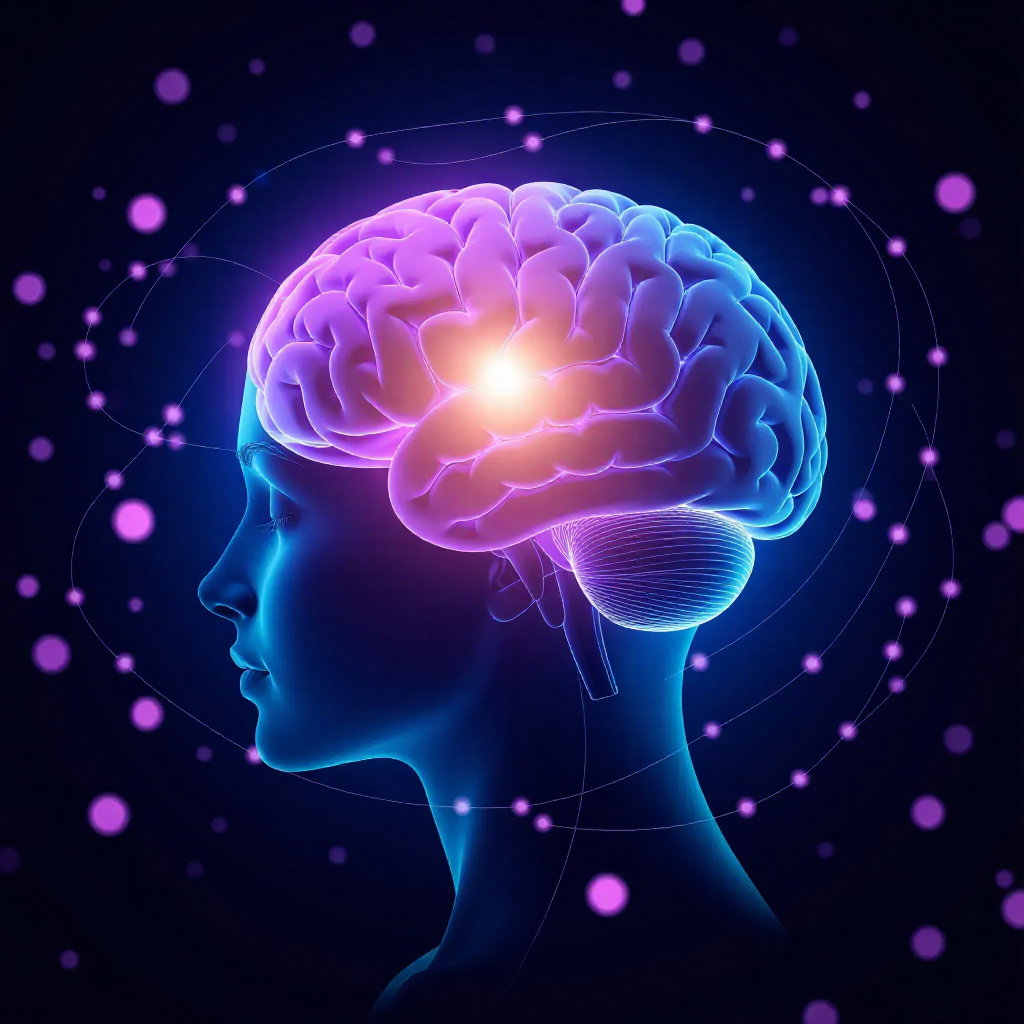Serotonin and the Emotional Rollercoaster: How Burnout Shakes Up Your Mood
Have you ever snapped at someone for no reason, felt suddenly tearful, or gone completely numb during a stressful time? These aren’t just mood swings. They could be signs that your serotonin system is out of balance.
Serotonin is often called the "feel-good chemical" because of the role it plays in maintaining emotional stability. But when burnout sets in, serotonin can decline rapidly, leaving your brain vulnerable to anxiety, irritability, and emotional disconnection.
In this post, we’ll explore how burnout affects your serotonin system, what that means for your mood and body, and how to help your brain recover.
What Is Serotonin?
Serotonin (5-HT or 5-hydroxytryptamine) is a neurotransmitter that helps regulate:
Mood and emotions
Sleep and circadian rhythm
Appetite and digestion
Social behavior
Body temperature
Pain perception
About 90% of serotonin is actually made in the gut, but the serotonin in your brain has very specific roles in emotional regulation and mental clarity.
When this system is working well, you feel calm, emotionally balanced, and resilient. But when it’s disrupted by chronic stress or burnout, everything can feel overwhelming.
The Brain’s Serotonergic Pathways: How Serotonin Moves
Serotonin is mainly produced in the raphe nuclei of the brainstem and projects widely throughout the brain via several important pathways:
1. Ascending Serotonergic Pathways
From: Dorsal and median raphe nuclei
To: Prefrontal cortex, hippocampus, amygdala, thalamus, and basal ganglia
Function: Regulate mood, attention, emotion, and memory
2. Descending Serotonergic Pathways
From: Raphe nuclei
To: Spinal cord and brainstem
Function: Involved in pain inhibition, motor control, and autonomic function
In burnout, the ascending serotonergic pathways are especially vulnerable. Disruption here can create a cascade of mood disorders, cognitive fog, and poor emotional regulation.
How Burnout Impacts Serotonin
Burnout is not just a psychological issue; it's a neurochemical disruption. Here's how it affects serotonin:
1. Reduced Serotonin Production
Chronic stress, especially social and workplace stress, leads to decreased serotonin synthesis in the dorsal raphe nuclei. Some studies show up to a 50% reduction under long-term stress.
2. Blunted Serotonin Receptor Activity
Prolonged burnout reduces the number and sensitivity of serotonin receptors. Even if some serotonin is released, the brain can’t respond to it effectively.
3. Increased Breakdown of Serotonin
Burnout accelerates the metabolic breakdown of serotonin. Enzymes like monoamine oxidase (MAO) become more active, leading to lower serotonin levels overall.
4. Cell Damage in Serotonin-Producing Regions
Animal studies show neuron death in the dorsal raphe nucleus due to chronic stress, leading to a long-term drop in serotonin availability in the prefrontal cortex.
5. Disrupted Circadian Rhythm and Temperature Regulation
Serotonin helps regulate sleep and body temperature. Burnout-related damage can lead to poor sleep quality, night sweats, and body temperature fluctuations.
Symptoms of Serotonin Disruption in Burnout
Why Serotonin Matters in Burnout
When your serotonin system is healthy, it acts like a stabilizer for your entire brain. It dampens excessive emotional reactivity, supports sleep, and helps you feel safe and socially connected.
But burnout lowers serotonin, causing everything from mood swings to social disconnection. This can create a vicious cycle: the more burned out you feel, the more your relationships, sleep, and clarity suffer, which worsens the burnout.
Burnout-induced serotonin depletion has also been linked to:
Irritable bowel symptoms
Thermal dysregulation (e.g., hot flashes, chills)
Worsening anxiety or panic attacks
Can Serotonin Levels Recover?
Yes. The brain is remarkably plastic. While recovery takes time, there are proven ways to boost serotonin naturally and restore emotional balance.
1. Light Exposure
Morning sunlight helps boost serotonin levels.
Try to get 15–20 minutes of sunlight exposure daily.
2. Physical Activity
Aerobic exercise (like brisk walking or dancing) stimulates serotonin release.
Bonus: Exercise also reduces MAO activity.
3. Nutrition
Eat foods high in tryptophan: eggs, salmon, turkey, oats, seeds.
Tryptophan is a precursor to serotonin.
4. Meditation and Deep Relaxation
Mindfulness practices boost serotonin and reduce cortisol.
Deep breathing and guided sound therapy (like MelodiaSync) can regulate serotonin pathways.
5. Gut Health Support
Probiotics and a fiber-rich diet support serotonin production in the gut-brain axis.
How MelodiaSync Can Help
MelodiaSync's EEG-guided binaural beat programs are specifically designed to:
Promote parasympathetic activity (the "rest and digest" system)
Recalibrate the brain’s rhythm and stress response
Support neurotransmitter regulation, including serotonin
By helping the brain enter a calm, neuroplastic state, MelodiaSync makes it easier to restore emotional resilience, sleep quality, and cognitive clarity.
Final Thoughts: The Chemistry of Calm
Burnout isn’t just emotional, it’s biological. And serotonin is one of the key chemicals disrupted in this state.
If you’ve felt emotionally unpredictable, disconnected, or chronically tense, your serotonin system may be asking for help. With time, self-care, and science-backed tools like MelodiaSync, you can begin to rebalance your brain, and reclaim your emotional stability.
You don’t have to stay on the rollercoaster. There is a way back to calm.
Disclaimer: This blog post is intended for informational purposes only and does not constitute medical advice. Please consult a qualified healthcare professional for any medical concerns or treatment decisions.




